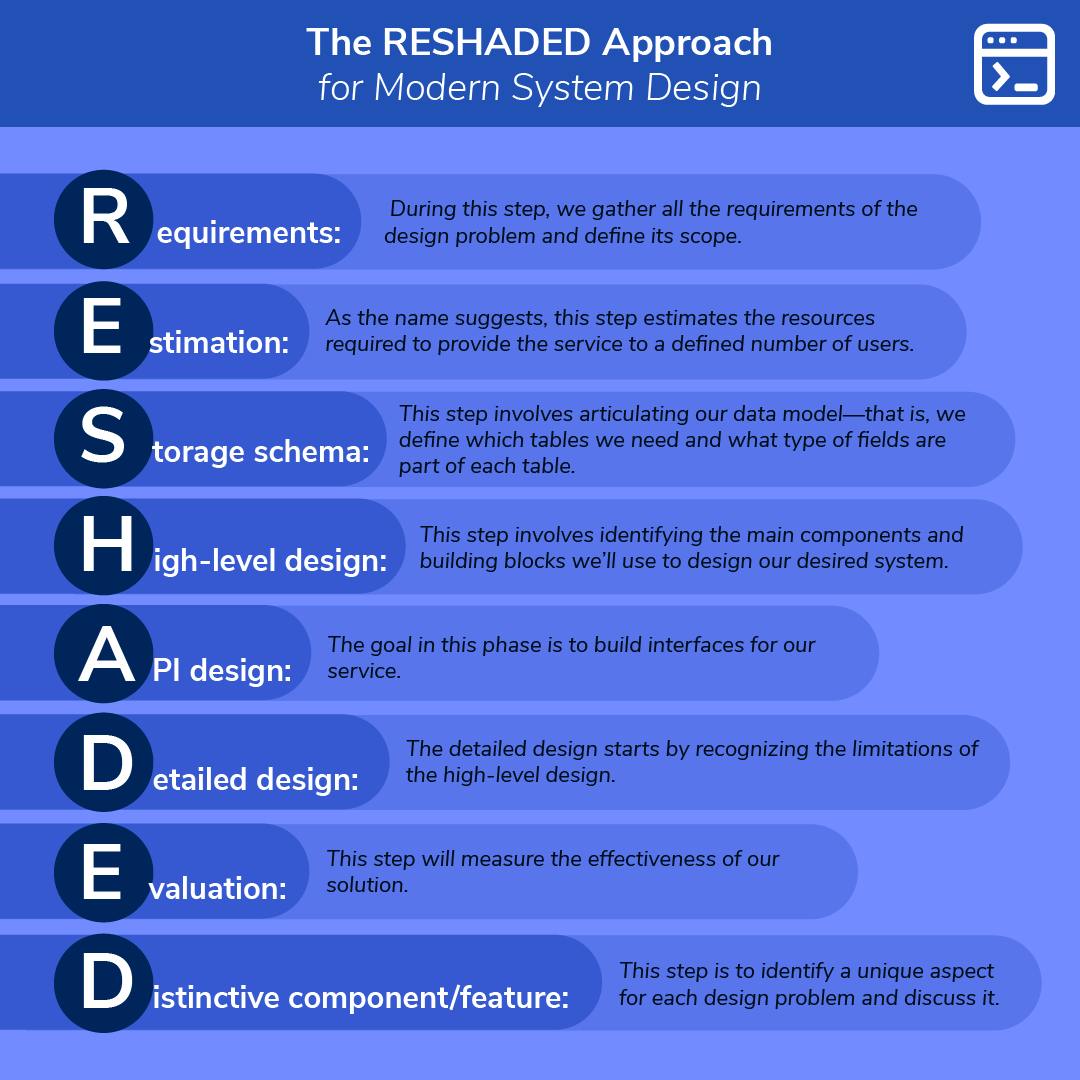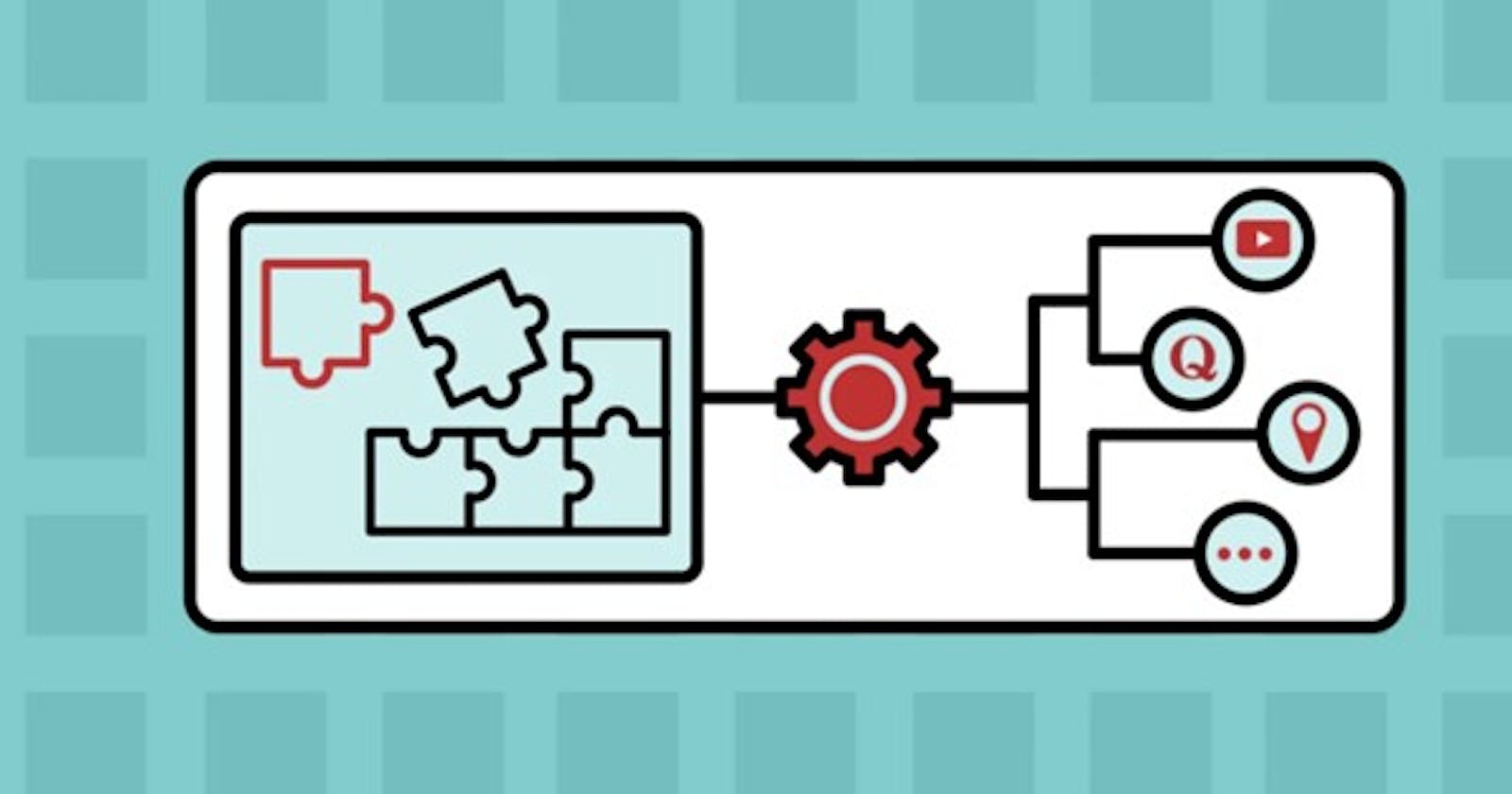We're very excited to announce the launch of our most extensive system design course yet: Grokking Modern System Design for Software Engineers & Managers! We’ve purposefully designed this course to enable developers, engineering managers, and product managers who want to understand the workings of modern software systems.
Going back to our very first system design course in 2016, Educative has always had deep roots in system design. As a result, hundreds of thousands of engineers have already leveled up their careers with the help of Educative's system design resources. Now we're thrilled to share this brand new course to help developers and managers navigate the evolving landscape of system design and design the future of scalable web applications.
Let’s go over some of the biggest reasons why we believe our new course is the best online system design resource currently available.
We'll go over:
- Course overview
- Key benefits & features
- What does the course content cover?
- Who is this course for?
- Why should you learn modern system design?
- What comes next?
Course overview
Grokking Modern System Design for Software Engineers & Managers offers a comprehensive and diverse curation of focused lessons to teach you the best strategies for cracking any, and we mean any, system design problem. More importantly, you'll be learning how to actually build distributed, highly scalable systems.
Some of these concepts may seem familiar if you've completed existing system design material with Educative. But through this brand new course, we've developed a deeper approach to learning the fundamentals of system design concepts: one created to support your long-term success in the workplace (interviews included)! That approach starts with understanding the core building blocks of system design, which will enable you to design any distributed system. More on those building blocks in a bit.
What is this course about?
Grokking Modern System Design for Software Engineers & Managers focuses on how system building happens in the real world, where system design problems often have needs or constraints that are unique to their particular use case. As a company grows, its needs may change, so real-world system building is often an iterative process to provide space for continual growth.
Instead of teaching you what design solutions are the best for a given situation, we will discuss the principles that underlie individual design elements that make up a design solution. You will learn to translate these principles to practical application and compare different elements to mix and match a custom solution for any design problem.
Who wrote the course?
System design has always been a core focus for Educative's team – that’s because our co-founders helped build pioneering distributed systems at companies like Microsoft and Facebook. Understanding that system design would continue to be a crucial skill in a future increasingly built with distributed systems, our co-founders personally teamed with industry pros and our expert technical content team to create our most comprehensive system design course yet.
Key benefits & features
To master system design, you'll need a combination of foundational knowledge, industry insights, and hands-on experience. We've designed our course with all of this in mind.
Here are a few reasons why we're so excited about this course, and why we're so confident it will set you up for success.

Grokking Modern System Design for Engineers & Managers distills years of system design experience, industry knowledge, and best practices into a single course. With Educative, you can always expect to see the latest and most relevant content.
Here are some more features of this course that you might not see elsewhere:
- Newer design problems informed by industry experts
- Designing system building blocks like CDN, distributed monitoring, messaging queues, etc.
- System designs that are evaluated based on bottlenecks, tradeoffs, and additional factors
- Multiple modes of interactivity through assessments and illustrations
Other courses may teach the same core concepts of system design that we do, but we're confident that once you try an Educative course, the quality of our course content will speak for itself.
What does the course content cover?
This course has 175 lessons, 135 quizzes, 5 playgrounds, and a whopping 828 illustrations. The introduction provides a nice overview of the course, as well as some key features, but you can get an even more detailed look by visiting any of the publicly available introductory modules of this course. If you want a taste, check out:
- Course Structure for Modern System Design
- Introduction to Building Blocks for Modern System Design
- Introduction to Load Balancers
Building Blocks
After the introduction, you'll move on to sixteen independent sections, each covering a building block of modern system design.
These sixteen building blocks are:
- Domain Name System (DNS)
- Load Balancers
- Databases
- Key-Value Store
- Content Delivery Network (CDN)
- Sequencers
- Service Monitoring
- Distributed Caching
- Distributed Messaging Queue
- Publish-Subscribe System
- Rate Limiter
- Blob Store
- Distributed Search
- Distributed Logging
- Distributed Task Scheduling
- Sharded Counters
At the end of the building blocks section, you'll be introduced to the RESHADED approach to modern system design.
The RESHADED approach
There isn't a universal, one-size-fits-all formula for solving all system design problems. However, the RESHADED strategy is a general guideline that can be extremely helpful for effectively resolving just about any design problem.
RESHADED stands for:
- Requirements
- Estimation
- Storage schema (optional)
- High-level design
- API design
- Detailed design
- Evaluation
- Distinctive component/feature
You'll be taught how to apply every step of the RESHADED guideline to all of the design problems in subsequent course modules.

Design Problems
Here are just some of the design problems that are covered in this course:
- Design YouTube
- Design Uber
- Design Quora
- Design Google Maps
- Design a Proximity Service/Yelp
- Design Twitter
- Design Newsfeed System
- Design Instagram
Each design problem is divided into three stages:
Requirements: Establish the requirements you need to understand before designing the application
Design: Craft a design that fulfills the requirements established above
Evaluation: Check to see if your design meets non-functional requirements, is performance, consistent, available, and scalable
This course is designed to prepare you for the real world, and as such, it concludes with a section on spectacular failures where small mistakes brought down large, successful applications. Here, you can get an under-the-hood analysis of system failures. It analyzes real-life disasters, such as the routine system maintenance that took down Facebook, Instagram, WhatsApp, and Oculus in 2021, and cost companies millions of dollars in revenue loss (though, we don't have statistics on the hours of sleep developers had lost).
Note: The course is recommended for beginners, but we advise that you familiarize yourself with the fundamental concepts of a distributed system before starting this course. Brushing up on computer networking and operating systems will also be helpful.
Who is this course for?
As its name implies, Grokking the Modern System Design for Software Engineers & Managers is for anyone looking to advance their software engineering career.
Whether you are a developer or a non-technical employee, this course will enable you to build scalable, performant, distributed systems.
Here are a just a few of the roles and titles that deal with modern system design:
- Senior and Principal Engineer
- Software Architect
- Engineering Manager
- Product Manager
- Technical Project Manager
This is the ideal course for:
- Software developers: Back-end developers, support engineers (SREs), full-stack and front-end developers can take this course to improve their work
- Software engineering managers: Any manager, from technical lead to architect, will benefit from a deep understanding of these design principles; rather than just knowing how to build YouTube, you'll be empowered to scale your product
- Product and project managers: Managers who want to steer the design of large-scale distributed systems will need to understand system design concepts to lead the design and development of successful applications
- System design students: If you enjoy learning about system design and are interested in how major tech companies approach system design, this is an excellent opportunity to see how it's done in real life
- Interview preppers: This course is a fantastic companion to our Scalability & System Design for Developers course, and contains a short guide at the end for software engineers preparing for upcoming interviews
Why should you learn modern system design?
Learning system design can give you a competitive edge in the job market, and it can also have a significant impact on your earning potential. Engineers with system design experience are in high demand, with the difference in compensation between an E4 at Facebook and an E5 being, on average, $121,000[1].
Understanding modern system design is a huge advantage in technical interviews, and being fluent in conversations about system design solutions can demonstrate that you have the expertise and confidence necessary to tackle real-life problems.
What comes next?
We want to help you find the success you're looking for, and the best way to do that is to keep learning.
Join the Educative community of learners, and develop a solid foundation in system design. We're proud of all the work that went into making Grokking Modern System Design for Software Engineers & Managers and can't wait to see the impact it has on your career.
Take a step toward fluency in system design with our new course. Then, let us know what you think!
And, as always, thank you for being a part of the Educative community.
Happy learning!
Continue learning about system design on Educative
- The complete guide to System Design in 2022
- The complete guide to the System Design Interview in 2022
- How to prepare for the System Design Interview in 2022
Start a discussion
Are you going to check out the course? Was this article helpful? Let us know in the comments below!
